The energy cooperation between Türkiye and Azerbaijan stands as a cornerstone of the two countries’ bilateral relationship, rooted in shared history, strategic interests and a mutual commitment to energy security. As of March 6, 2025, this partnership has reached an exemplary level of maturity, marked by operational successes and expanding ambitions. Türkiye views this collaboration as a model of regional synergy, enhancing energy security while amplifying the geopolitical influence. The current state of energy cooperation is highly dynamic and productive, characterized by operational pipelines, increased gas flows and a growing focus on renewable energy.
On March 5, 2025, a landmark natural gas cooperation pact entered into effect, published in Türkiye’s Official Gazette, signifying a deepened commitment to energy integration. This agreement facilitates the transfer of additional volumes of Azerbaijani gas from the Caspian region to Türkiye and onward to Europe via expanded pipelines such as the Trans-Anatolian Natural Gas Pipeline (TANAP) and the Baku-Tbilisi-Erzurum (BTE) pipeline. Furthermore, the recent connection of Türkiye’s gas network to Azerbaijan’s Nakhchivan exclave, inaugurated by President Recep Tayyip Erdoğan and President Ilham Aliyev, underscores the ability to deliver innovative solutions that enhance regional energy resilience.
From Türkiye’s perspective, the most significant achievements include the Southern Gas Corridor (SGC), encompassing TANAP and the Baku-Tbilisi-Ceyhan (BTC) oil pipeline, which is a testament to the collaborative success. TANAP, with its capacity being doubled from 16 billion cubic meters (bcm) to 32 bcm annually, as announced by Erdoğan in 2022, ensures energy supply security for Türkiye and Europe, positioning Türkiye as a critical transit hub and reducing Europe’s reliance on Russian gas. The Iğdır-Nakhchivan pipeline, operational as of March 5, 2025, ends Nakhchivan’s dependence on Iranian gas, reinforcing Türkiye’s role as a reliable energy partner and enhancing Azerbaijan’s energy sovereignty. Historical projects like the BTC pipeline and the BTE pipeline have also solidified Türkiye’s strategic position, channeling Caspian resources westward and fostering economic stability in the region.
Looking ahead, Türkiye and Azerbaijan are poised to expand energy collaboration with ambitious projects that align with both economic goals and global sustainability trends. These initiatives will reinforce Türkiye’s position as a regional energy leader while diversifying the energy mix. Planned projects include the further expansion of TANAP and BTE capacities, with Azerbaijan aiming to increase gas exports to Europe to 20 bcm annually by 2027. Türkiye will play a pivotal role in facilitating this transit, potentially integrating Turkmen gas via a Trans-Caspian pipeline, enhancing Türkiye’s hub status.
The Iğdır-Nakhchivan pipeline could see capacity upgrades to meet growing demand, further solidifying bilateral energy ties. Additionally, Azerbaijan’s Energy Minister Parviz Shahbazov has confirmed feasibility studies for a “renewable energy corridor” with Türkiye, focusing on green energy exports to Europe. Projects like the “Azerbaijan-Türkiye-Europe” corridor aim to transmit 1 gigawatt (GW) of renewable energy from Nakhchivan initially, with the potential for greater volumes from the Caspian region.
Investments in green energy are actively pursued, complementing Türkiye’s ambitions to reduce carbon emissions and diversify energy sources. Notable initiatives include solar and wind projects in Azerbaijan, such as the 230 MW Garadagh Solar Plant and the 240 MW Khizi-Absheron Wind Plant, which Türkiye aims to integrate into the grid via Nakhchivan and beyond. The “Caspian-Black Sea-Europe” corridor, targeting 4 GW initially, positions Türkiye as a conduit for clean energy exports, aligning with EU decarbonization goals.
The Türkiye-Azerbaijan energy partnership is a transformative force, reshaping the regional energy map and elevating both countries’ roles on the global stage. By channeling Azerbaijani and potentially Turkmen gas through Türkiye, the project reduces the region’s reliance on Russian and Iranian supplies, as exemplified by the Nakhchivan pipeline freeing Azerbaijan’s exclave from Iran’s influence. The SGC’s expansion further secures energy flows to Southeast Europe, with Türkiye as the linchpin. Green energy corridors like “Central Asia-Azerbaijan-Europe” and “Azerbaijan-Türkiye-Europe” integrate renewable resources from the Caspian region into European markets via Türkiye, fostering a sustainable energy network. This partnership counters regional rivals, enhancing Türkiye’s influence over energy routes and reinforcing Azerbaijan’s sovereignty, particularly post-2020 Karabakh victory.
The Trans-Caspian East-West-Middle Corridor Initiative (Middle Corridor) amplifies Türkiye’s and Azerbaijan’s strategic position in global energy and trade networks. Launched as a multimodal transport route connecting Southeast Asia and China to Europe via Kazakhstan, the Caspian Sea, Azerbaijan, Georgia and Türkiye, the Middle Corridor has gained unprecedented momentum as of March 6, 2025, amid geopolitical shifts such as the Russia-Ukraine conflict and disruptions in alternative routes like the Suez Canal. This initiative enhances energy security and boosts trade competitiveness, leveraging Türkiye’s geographic proximity to the resource-rich Caspian region to secure gas and oil supplies via projects like BTC and TANAP, while offering a shorter, safer trade route that cuts transit time from China to Europe to approximately 12 days and over 7,000 kilometers.
Azerbaijan’s renewable push, supported by Türkiye, elevates its global profile as a clean energy supplier, especially as COP29 host in 2024, aligning with Türkiye’s vision of leading the global energy transition.

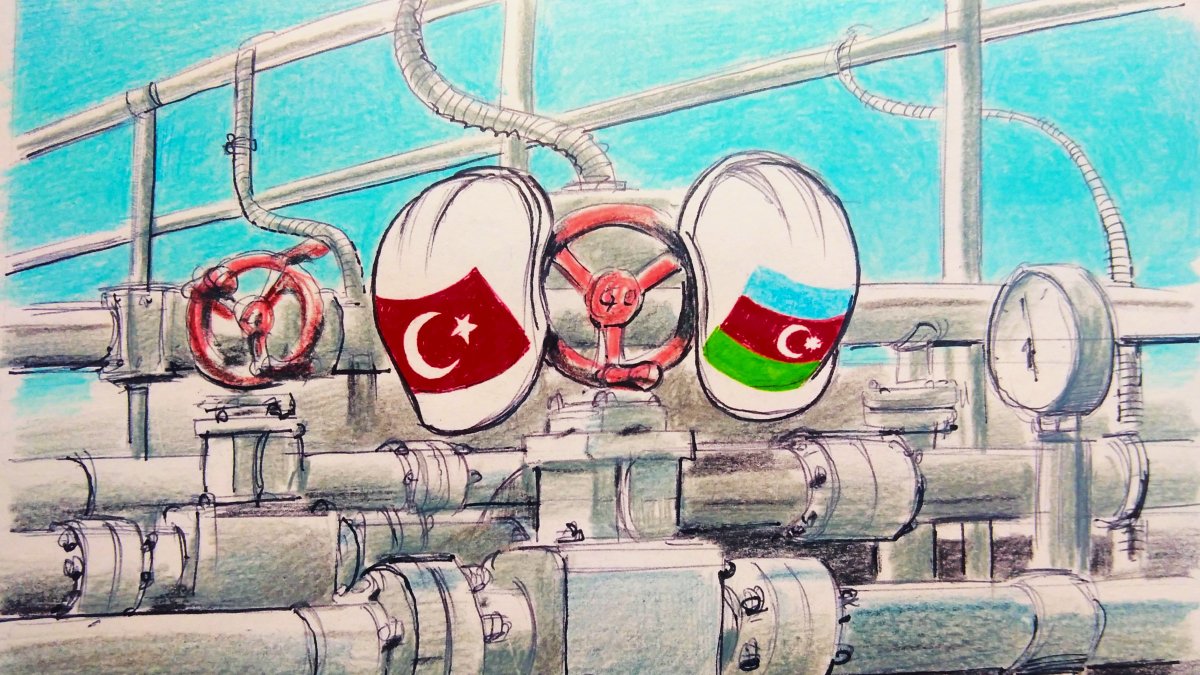




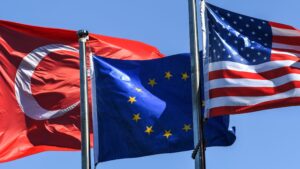





















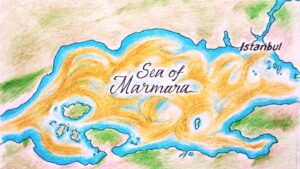







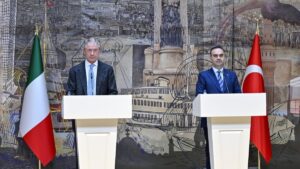












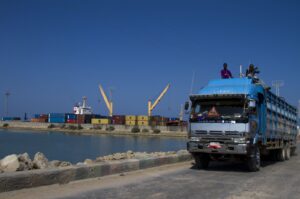


Be First to Comment